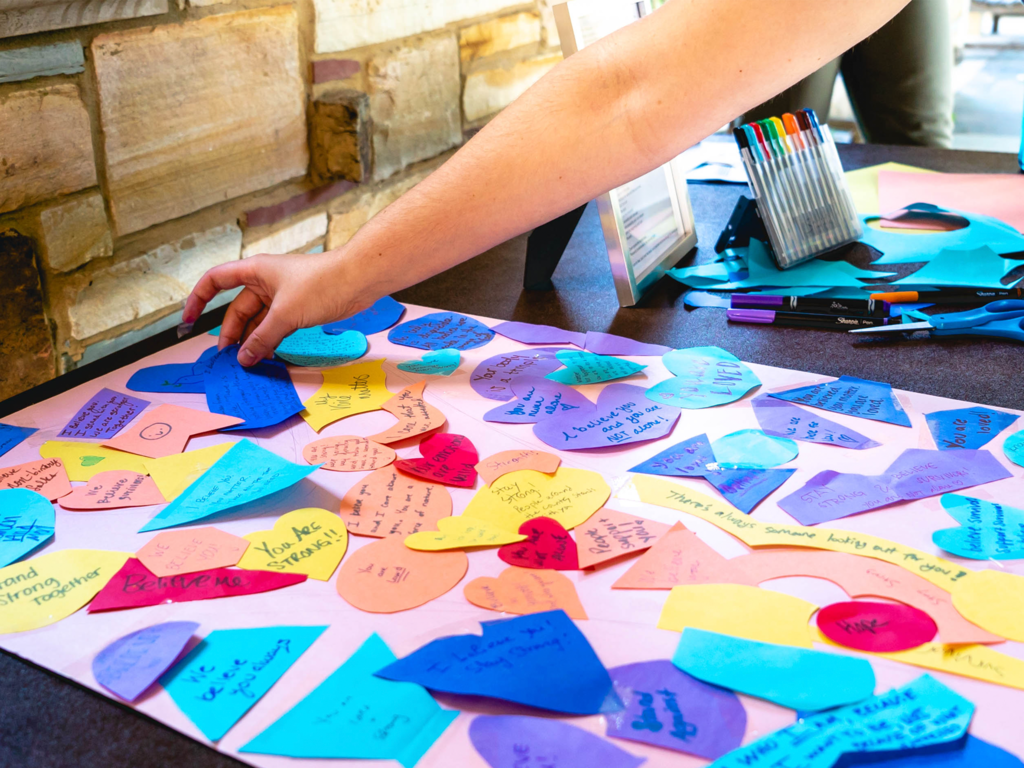Over the course of the last week, Rhodes College students, faculty, and staff, led by Rhodes Chaplain Rev. Beatrix Weil, joined together to create a communal art project to encourage discussion about sexual assault. The art project was initially conceptualized and practiced by Rev. Kori Phillips McMurtry, now pastor of First Presbyterian Church in Memphis, when she was a student pastor in Wachung Avenue Presbyterian in New Jersey.
“Judges Chapter 19 tells the dark story of a woman who is assaulted, and then her body is essentially cut up and spread throughout the tribes and territories of Israel,” McMurtry explains. “Part of the work we’re doing is to re-member her. To remember her and bring her back together.”
Students were encouraged to read a poem written by McMurtry about the story of the woman in Judges, and then to write their thoughts, experiences, or an encouraging word for an assault survivor, on pieces of colored paper. Those pieces of paper were then assembled into collage art.
“This artwork is the idea that all of these broken pieces will then come back together to become whole again, and that we might offer a word of hope for survivors,” McMurtry says.
Weil organized the campus project in response to the focus on sexual assault in the news media over the last few weeks. “Sexual assault has been in the news recently at an increased rate. I know it’s been all over my Facebook feed, and I expect, many other people’s as well,” Weil says. “That can bring up a lot of different emotions, so I thought it would be good to have some sort of offering—some kind of creative response to the increased conversation about sexual assault.”
“I think that art is healing. I think that doing something together as a community is healing,” Weil says. “I’m just hoping this will be one of many steps toward healing for members of this community.”
Abbey Bako ’20, president of Rhodes’ Culture of Consent group, says the communal art project allowed students to process what they’ve been exposed to through news coverage and what they’ve experienced in their own lives in a safe space.
“By voicing our opinions in writing and then creating a visual together, this project creates a collective of voices and allows survivors and allies a space to feel safe, respected, and understood,” Bako says. “It represents all of the voices and thoughts that go unheard because of fear, denial, and shame.”
The completed artwork will be a featured part of Rhodes’ Culture of Consent Community art showcase, Creating a Collective: Personal Testimonies against Rape Culture, at the end of the month.
